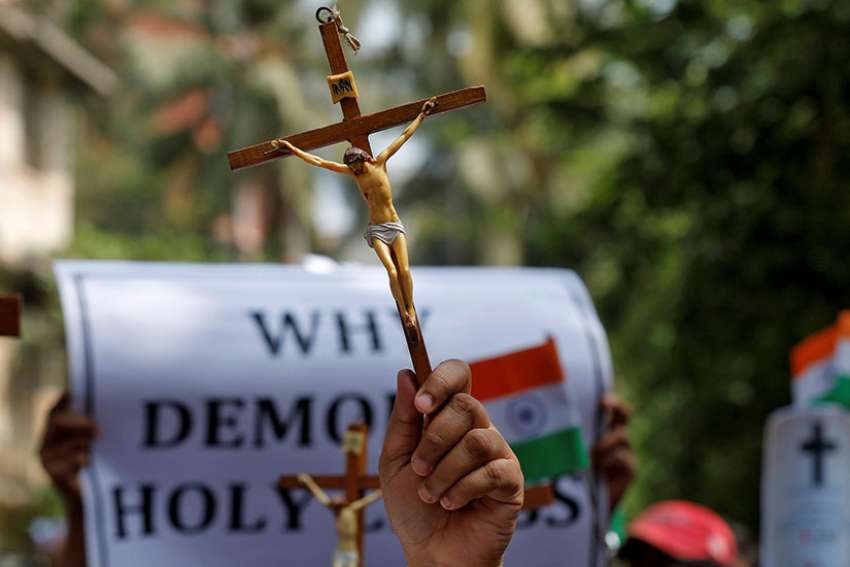“This is gross misuse of authority and the archdiocese, in collaboration with various representative bodies, will legally pursue the matter,” Archdiocese of Bombay spokesperson Father Nigel Barrett told Matters India in an April 30 article.
Local civic officers had demolished the cross a day before, inciting an angry response from the Catholic community. A makeshift cross was established hours later.
In 2016 the Allahabad High Court issued a directive calling for the removal of all religious structures which infringe upon any public roads, ranging from highways to pathways. The ruling is meant to restrict religious activities hindering the flow of traffic on public roads.
The court ordered any religious structure raised before 2011 to be removed within two months, and those issued before would need to be moved to private land or removed in six months. However, the cross was already located on private property.
Assistant municipal commissioner Sharad Ughade had sent notice to the church on April 26 that the cross would be demolished, referring to the ruling. In response, the owner of the land that the cross was located on provided documents that proved the land was private.
Father Barrett said that legal action was on its way over the destruction of the cross, decrying that the proper documentation was seemingly ignored by civic authorities.
The representative for the area's state legal assembly, Ashish Shelar, met with all affected parties on May 2. According to Mid-Day, he said the cross was included on a list of illegal structures which interfere with the development plan of the city.
He said the cross was mistakenly added to the list “without proper homework.”
Moving forward, he said the plan would be to reexamine the documents of the demolitions completed so far, to give all religious structures on the list a month to be relocated. Shelar also granted the request for a Christian cemetery to be built in Malad, a suburb on the other side of Mumbai.
Thirty-two temples and six crosses have also been removed since the court order, according to the Times of India.


